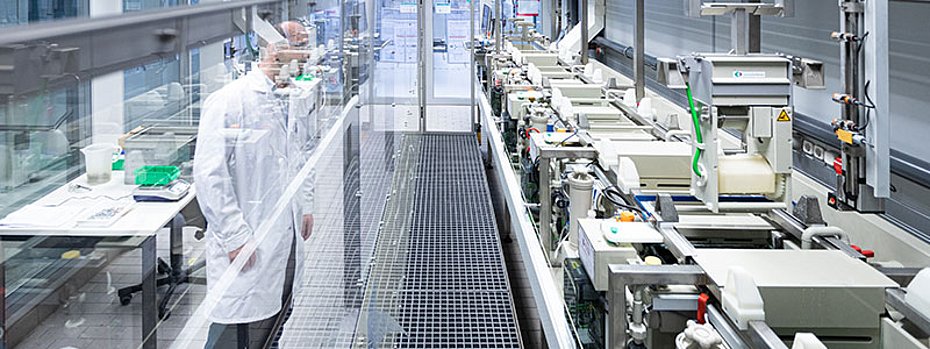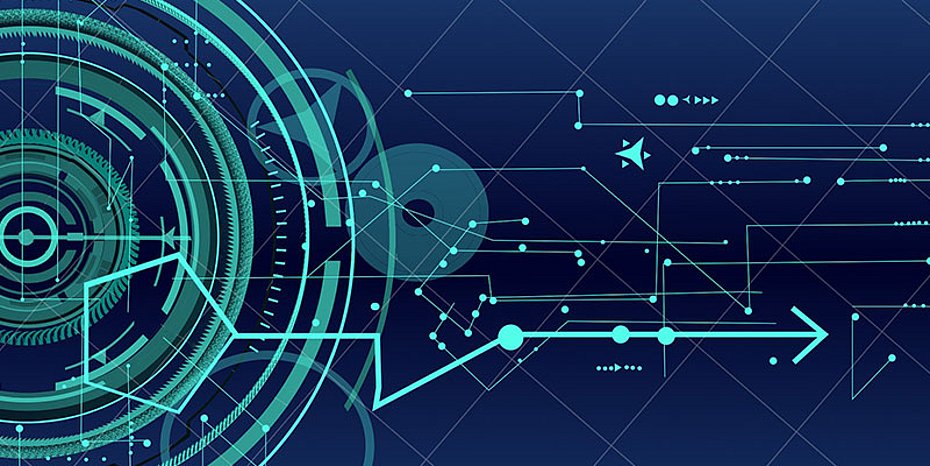Digitization and hard chrome plating from chromium(III) electrolytes: these are the two major topics that researchers from the Electroplating Technology department at Fraunhofer IPA are currently working on. They will be presenting their findings and developments at the SurfaceTechnology GERMANY trade fair from June 4 to 6, 2024: Hall 1, Stand H16. Energy and resources could be used more efficiently, production processes optimized and the quality of products improved - the digitalization of electroplating technology makes all of this possible. The prerequisite, however, is a sufficiently broad database. A research team led by Peter Schwanzer from the Electroplating Technology department at the Fraunhofer Institute for Manufacturing Engineering and Automation IPA has investigated how existing production systems and processes can be subsequently digitalized. The result is the so-called "learning electroplating". It serves as a development platform and demonstrator to make better use of the potential offered by digitalization and to develop and test new approaches.
Knowledge about digital transformation in electroplating technology
Of course, the learning electroplating system is too big to exhibit at SurfaceTechnology GERMANY. What the researchers from Fraunhofer IPA are bringing to the trade fair, however, is their knowledge of digital transformation and the experience they have gained with it in recent years. For example, they will show how digitalization can be used to identify and implement energy efficiency measures or how the product carbon footprint can be determined and reduced. They also offer companies a "digitalization readiness check". This involves checking what data is needed, for example, to optimize production, create a carbon footprint or increase energy efficiency, what data is already available and how the missing data can be recorded. Quick checks, in which project ideas are checked for feasibility, are now also possible.
Once the data source is available, it can be evaluated using machine learning methods. For example, researchers Stefan Kölle and Peter Schwanzer have succeeded in using artificial intelligence to predict how the electrolyte will have changed during galvanizing after a few hours of use. They were supported by colleagues from the Center for Cyber Cognitive Intelligence at Fraunhofer IPA. In the future, this type of prediction should make it possible to reduce manual inspections accordingly. Instead of expensive tests, simulations could in future show how coatings behave.
REACh regulation: Chromium(III) is the best alternative to chromium(VI)
However, as far as the analysis of alternatives in ongoing applications for authorization under the REACh Regulation is concerned, simulations do not yet provide accurate forecasts. In recent years, the team from the Electroplating Department has largely settled on chromium(III) as the most promising alternative to chromium(VI). At SurfaceTechnology GERMANY, they will be demonstrating the potential offered by hard chrome plating using trivalent electrolytes, but also the current limitations.
Electrolyzers: Coated with one of the rarest elements of all
The Fraunhofer IPA research team will also be showcasing electrochemically produced iridium coatings for future use in electrolysers, which are necessary for the production of hydrogen. With an annual production volume of only a few tons, iridium is one of the rarest elements of all and is correspondingly expensive. In the research project "Iridium-reduced anode catalysts for PEM water electrolysis" (IREKA), scientists from Fraunhofer IPA and the Leibniz Institute for Catalysis are looking for ways to reduce the amount of iridium required to a minimum. The first promising results are now available.
Expert forum: Presentations on digitalization and energy efficiency
The main topics of the Fraunhofer IPA are also reflected in the expert forum. On 4 June at 3 p.m., Peter Schwanzer will talk about "Digitalized electroplating technology and data use". One day later, on June 5 at 2:20 pm, Stefan Kölle will present his research results in his lecture "On the way to climate neutrality - energy-efficient electroplating".
Stuttgart Surface Technology Award "The Surface": Who won?
The jury is still meeting at the moment, but the winners will be announced on June 4: The Stuttgart Surface Technology Award "The Surface" will be presented again this year at SurfaceTechnology GERMANY 2024. The award has been honoring innovative applications and technologies within all disciplines of surface technology since 2012. Individuals and organizations were invited to apply for the award until 8 April. The three-member jury will now nominate the best five entries from all applications before selecting the three winners at the expert forum on June 4 from 1 pm. (OM-5/24)
► Find out more about SurfaceTechnology GERMANY 2024 in our SurfaceTechnology GERMANY trade fair special (topics, exhibitor news and further information)
Contact
Fraunhofer Institute for Manufacturing Engineering and Automation IPA
Nobelstr. 12
70569 Stuttgart (Germany)
www.ipa.fraunhofer.de
The Fraunhofer Institute for Manufacturing Engineering and Automation IPA
The Fraunhofer IPA was founded in 1959 and employs almost 1200 people. The focus of research and development is on organizational and technological tasks in production. Methods, components and devices through to complete machines and systems are developed, tested and used as examples. The 19 specialist departments of the Fraunhofer IPA cover the entire field of production technology and work on an interdisciplinary basis with industrial companies in the automotive, mechanical and plant engineering, electronics and microsystems technology, energy, medical and biotechnology and process industries.


